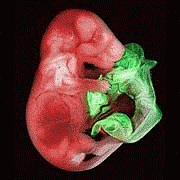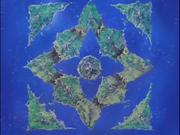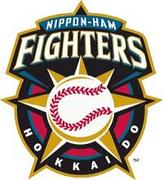世界的に有名な日本の脳科学者とノーベル賞受賞者からの「Correspondence」
http://
文化の違いのせいで、インターネット上での日本人研究者の認知度が低くなっている
Cultural differences reduce Japanese researchers' visibility on the Web
Masao Ito and Torsten Wiesel
doi:10.1038/ndigest.2007.070107 Original source: Nature 817-817 (2006); doi:10.1038/444817a
世界には1 つの大きな「壁のない研究所」が生まれつつあり、私たち科学者はそのことをひしひしと感じています。この「研究所」では情報が、近隣の研究所にいる研究員に伝わるのと同じくらい簡単に、地球の裏側にも伝わります。こうした事態に不安を感じる人もいるでしょうが、優秀な研究者、特に基礎科学の研究者にとっては大きな前進のチャンスといえます。ところが、情報の共有は必ずしも全体に釣り合いの取れた対称的なものではなく、関与する研究者ひとりひとりの利用できるツールによって格差が生じています。
原文
http://
As scientists, we are keenly aware that the world is developing into a single 'laboratory without walls', in which information passes as easily to the other side of the world as to the person working in a neighbouring institute. Although some people may be uneasy with this, to the brightest minds it is an enormous opportunity for progress, particularly in fundamental research. Yet information-sharing is not necessarily symmetrical, and depends on the tools that each contributor has available.
Our experience in managing the international research projects sponsored by the Human Frontier Science Program (HFSP) illustrates the problem.
This organization ― of which we are president (M. I.) and secretary general (T. W.) ― was established more than 15 years ago by Japan as an international programme for research into fundamental life processes. The HFSP secretariat, which is based in Strasbourg, selects postdoctoral fellows and research projects via international review committees.
Publication databases and powerful search engines allow the secretariat to update information regularly and to find it readily. However, it has become obvious that not all institutes and countries are on an equal footing in this respect (see http://
In the case of Japan, it has become apparent that many scientists suffer from a lack of international visibility, in that they are very difficult to find by search engines and indeed in publication databases.
As a consequence, Japanese scientists are less likely to be invited to participate in collaborative projects or to become reviewers, which deprives them of a full international experience. Three main issues need to be addressed.
First, internationally comprehensible web pages must be constructed, to make a scientist's research interests, research group and publications immediately clear to anyone who visits the site. Many traditional Japanese-language scientists' websites start with a description of their philosophy and artistic interests, which in Japan are recognized as important in a potential mentor. Although this is culturally appropriate for Japanese students and postdocs, its relevance is, unfortunately, lost on the international visitor, who is accustomed to the succinct presentations typical of Western research institutes and universities. One simple remedy would be for Japanese researchers to have a Western-style page within their website, easily accessible and clearly signposted, in English, on the homepage.
Second, many academic institutions have websites based on their curricula, which are appropriate for Japanese students, but are of limited interest for international visitors. It is important that the homepage of such institutional websites provides a clear option headed 'research', in the English language, that leads to a page summarizing the research in a style that is familiar to international visitors.
Third, in many regions of the world, numerous scientists have similar or identical family names and initials, making literature searches in PubMed very difficult or impossible. This is certainly an issue in some Asian countries, including Japan. Some concerted effort is necessary to resolve this problem ― perhaps by the addition of laboratory codes, or a 'zip code' for the initials of individual scientists ― to allow these scientists to compete fairly on the international level.
All of these are pressing issues in global science communication. Frontier-level international research is becoming concentrated in those institutions and laboratories that have the maximum visibility on the World Wide Web.
http://
文化の違いのせいで、インターネット上での日本人研究者の認知度が低くなっている
Cultural differences reduce Japanese researchers' visibility on the Web
Masao Ito and Torsten Wiesel
doi:10.1038/ndigest.2007.070107 Original source: Nature 817-817 (2006); doi:10.1038/444817a
世界には1 つの大きな「壁のない研究所」が生まれつつあり、私たち科学者はそのことをひしひしと感じています。この「研究所」では情報が、近隣の研究所にいる研究員に伝わるのと同じくらい簡単に、地球の裏側にも伝わります。こうした事態に不安を感じる人もいるでしょうが、優秀な研究者、特に基礎科学の研究者にとっては大きな前進のチャンスといえます。ところが、情報の共有は必ずしも全体に釣り合いの取れた対称的なものではなく、関与する研究者ひとりひとりの利用できるツールによって格差が生じています。
原文
http://
As scientists, we are keenly aware that the world is developing into a single 'laboratory without walls', in which information passes as easily to the other side of the world as to the person working in a neighbouring institute. Although some people may be uneasy with this, to the brightest minds it is an enormous opportunity for progress, particularly in fundamental research. Yet information-sharing is not necessarily symmetrical, and depends on the tools that each contributor has available.
Our experience in managing the international research projects sponsored by the Human Frontier Science Program (HFSP) illustrates the problem.
This organization ― of which we are president (M. I.) and secretary general (T. W.) ― was established more than 15 years ago by Japan as an international programme for research into fundamental life processes. The HFSP secretariat, which is based in Strasbourg, selects postdoctoral fellows and research projects via international review committees.
Publication databases and powerful search engines allow the secretariat to update information regularly and to find it readily. However, it has become obvious that not all institutes and countries are on an equal footing in this respect (see http://
In the case of Japan, it has become apparent that many scientists suffer from a lack of international visibility, in that they are very difficult to find by search engines and indeed in publication databases.
As a consequence, Japanese scientists are less likely to be invited to participate in collaborative projects or to become reviewers, which deprives them of a full international experience. Three main issues need to be addressed.
First, internationally comprehensible web pages must be constructed, to make a scientist's research interests, research group and publications immediately clear to anyone who visits the site. Many traditional Japanese-language scientists' websites start with a description of their philosophy and artistic interests, which in Japan are recognized as important in a potential mentor. Although this is culturally appropriate for Japanese students and postdocs, its relevance is, unfortunately, lost on the international visitor, who is accustomed to the succinct presentations typical of Western research institutes and universities. One simple remedy would be for Japanese researchers to have a Western-style page within their website, easily accessible and clearly signposted, in English, on the homepage.
Second, many academic institutions have websites based on their curricula, which are appropriate for Japanese students, but are of limited interest for international visitors. It is important that the homepage of such institutional websites provides a clear option headed 'research', in the English language, that leads to a page summarizing the research in a style that is familiar to international visitors.
Third, in many regions of the world, numerous scientists have similar or identical family names and initials, making literature searches in PubMed very difficult or impossible. This is certainly an issue in some Asian countries, including Japan. Some concerted effort is necessary to resolve this problem ― perhaps by the addition of laboratory codes, or a 'zip code' for the initials of individual scientists ― to allow these scientists to compete fairly on the international level.
All of these are pressing issues in global science communication. Frontier-level international research is becoming concentrated in those institutions and laboratories that have the maximum visibility on the World Wide Web.
|
|
|
|
コメント(4)
関連した記事が載っています。
Nature 445, 256 (18 January 2007) | doi:10.1038/445256d; Published online 17 January 2007
Need to speak English puts burden on Asian scientists
Ian Smith1
Shikanodai-Nishi 3-6-10, Ikoma, Nara 630-0114, Japan
Sir:
Masao Ito and Torsten Wiesel point out in Correspondence that factors such as non-standard design or a lack of English on homepages make it harder for the Human Frontier Science Program to identify potential project collaborators or reviewers ("Cultural differences reduce Japanese researchers' visibility on the Web" Nature 444, 817, 2006). However, it is surely not the case that only those whose details are easily found through Web-based searching will be able to compete effectively. Inhomogeneities in the ability of scientists and institutions to perform internationally competitive research have been with us for many decades, and I doubt whether use of the Web has perturbed this pattern to any substantial extent.
I would also dispute Ito and Wiesel's contention that perfecting English-language homepages is a 'simple remedy'. Having to communicate in English to survive, let alone flourish, in the international scientific arena places enormous additional burdens on scientists throughout Asia. Working in a young science-based university in Japan, I see these obstacles being confronted every day. Reading the literature, writing manuscripts, giving oral presentations at conferences ― all of these are difficult enough for native speakers of English, but they are fearsome tasks for Asian scientists. In my experience, most English-speaking scientists are blissfully unaware of their magnitude.
The brightest minds in Asian science, adept not only as scientists but also as linguists, will easily possess the wherewithal to create homepages that do them justice. It is with their equally scientifically gifted but less linguistically capable colleagues that we should be concerned.
http://www.nature.com/nature/journal/v445/n7125/full/445256d.html
Nature 445, 256 (18 January 2007) | doi:10.1038/445256d; Published online 17 January 2007
Need to speak English puts burden on Asian scientists
Ian Smith1
Shikanodai-Nishi 3-6-10, Ikoma, Nara 630-0114, Japan
Sir:
Masao Ito and Torsten Wiesel point out in Correspondence that factors such as non-standard design or a lack of English on homepages make it harder for the Human Frontier Science Program to identify potential project collaborators or reviewers ("Cultural differences reduce Japanese researchers' visibility on the Web" Nature 444, 817, 2006). However, it is surely not the case that only those whose details are easily found through Web-based searching will be able to compete effectively. Inhomogeneities in the ability of scientists and institutions to perform internationally competitive research have been with us for many decades, and I doubt whether use of the Web has perturbed this pattern to any substantial extent.
I would also dispute Ito and Wiesel's contention that perfecting English-language homepages is a 'simple remedy'. Having to communicate in English to survive, let alone flourish, in the international scientific arena places enormous additional burdens on scientists throughout Asia. Working in a young science-based university in Japan, I see these obstacles being confronted every day. Reading the literature, writing manuscripts, giving oral presentations at conferences ― all of these are difficult enough for native speakers of English, but they are fearsome tasks for Asian scientists. In my experience, most English-speaking scientists are blissfully unaware of their magnitude.
The brightest minds in Asian science, adept not only as scientists but also as linguists, will easily possess the wherewithal to create homepages that do them justice. It is with their equally scientifically gifted but less linguistically capable colleagues that we should be concerned.
http://www.nature.com/nature/journal/v445/n7125/full/445256d.html
Open Access Japanにも紹介されていた。
また、EMBO Repにも似たような話(こっちは論文?)が載っていた。
--
文化の違いのせいで、インターネット上での日本人研究者の認知度が低くなっている(Nature)
Natureに日本人の特性によりインターネット上での認知度が低くなっているというニュースが掲載されていました。短くまとめると,日本人研究者のホームページのコンテンツ,大学のホームページのコンテンツ,日本人の名前がサーチエンジンや文献データベースで探しにくいとのことで,共同研究や査読者への依頼が来にくくなっていると指摘されていました。サーチエンジン経由機関リポジトリ乗り換え著者のホームページ着といった流れで,事態が解決すれば良いのですが。。
Cultural differences reduce Japanese researchers' visibility on the Web
http://www.nature.com/doifinder/10.1038/444817a
また、EMBO Repにも似たような話(こっちは論文?)が載っていた。
--
文化の違いのせいで、インターネット上での日本人研究者の認知度が低くなっている(Nature)
Natureに日本人の特性によりインターネット上での認知度が低くなっているというニュースが掲載されていました。短くまとめると,日本人研究者のホームページのコンテンツ,大学のホームページのコンテンツ,日本人の名前がサーチエンジンや文献データベースで探しにくいとのことで,共同研究や査読者への依頼が来にくくなっていると指摘されていました。サーチエンジン経由機関リポジトリ乗り換え著者のホームページ着といった流れで,事態が解決すれば良いのですが。。
Cultural differences reduce Japanese researchers' visibility on the Web
http://www.nature.com/doifinder/10.1038/444817a
(3)優れた研究 劣る発信力
昨年12月10日夜、スウェーデンのストックホルム市庁舎で盛大なノーベル賞晩さん会が開かれた。正装の紳士淑女を見下ろすステージから、日本学術振興会の小林誠理事が受賞者を代表して「宇宙には多くの謎が残っており、仲間と一緒に追い続けたい」とスピーチ、翌朝の地元紙は「日の丸が祝宴を席巻」と報じた。
数ある賞の中でも、ノーベル賞は別格だ。自然科学3賞で226人の受賞者を出している米国でさえ、大学などは、輩出したノーベル賞学者の数を宣伝する。
国や研究機関の威光を高めるだけでなく、現実的な利益も生む。昨年12月の予算編成では、基礎研究を担う科学研究費補助金(科研費)が2%伸びた。厳しい財政事情の中、塩谷立文部科学相も「ノーベル賞の効果」と認める。
それだけに、どの国もノーベル賞の「評価」を得ようと躍起だ。
政府は2001年、「50年間で30人のノーベル賞受賞者を出す」と打ち上げ、ストックホルムに日本学術振興会の研究連絡センターを新設した。シンポジウムを開催したり、スウェーデン王立科学アカデミーとの連絡窓口を務めたりして、学術交流を支援する。小野元之理事長は「特別なロビー活動はしていない。地道な学術情報の発信や交流がノーベル賞につながる」と話す。
ノーベル賞に大国の威信をかける中国政府は、選考委員を国内に無料招待するなど、情報収集に力を入れる。こうした中には、スキャンダルに発展するものもあり、昨年12月のノーベル賞授賞式直後、スウェーデンのメディアなどは「スウェーデン検察当局が、汚職の容疑で予備的な捜査を始めた」と報じた。
選考委員らを招くのは日本の大学なども同じ。研究者の間では「スウェーデンからシンポジウムの招待があれば、断る科学者はいない」と言われるほどだ。
ノーベル賞の存在は、人口900万人の小国スウェーデンの「価値」をも高める。
それに比べ、日本は優れた研究成果がありながら、情報の発信がまだ苦手だ。
ノーベル賞の選考は、研究者からの推薦で始まる。ノーベル財団から推薦依頼が届くのは、約3000人と限られる。だが、ある国立大学教授は「忙しい中、それなりの理由を挙げて英語で推薦状を作るのは大変」と打ち明ける。推薦の「特権」さえ行使しきれていない。
内閣府幹部が01年、積極的な返信を呼びかけ、「ノーベル賞の推薦状が机の引き出しで眠る現状は、日本の研究評価の貧しさを物語る」と批判したが、評価が根付かない風土は変わらない。
昨年10月、日本人としては史上3人目となる国際科学会議副会長職に就任した東京大の黒田玲子教授は「外国の学者と対等につきあい、人脈を作るのが不得手な人が多い。これでは国際社会で日本の存在はアピールできない。視野を広げ、社会や文化にもっと関心を持つことが必要」と指摘している。
(2009年1月25日 読売新聞)
昨年12月10日夜、スウェーデンのストックホルム市庁舎で盛大なノーベル賞晩さん会が開かれた。正装の紳士淑女を見下ろすステージから、日本学術振興会の小林誠理事が受賞者を代表して「宇宙には多くの謎が残っており、仲間と一緒に追い続けたい」とスピーチ、翌朝の地元紙は「日の丸が祝宴を席巻」と報じた。
数ある賞の中でも、ノーベル賞は別格だ。自然科学3賞で226人の受賞者を出している米国でさえ、大学などは、輩出したノーベル賞学者の数を宣伝する。
国や研究機関の威光を高めるだけでなく、現実的な利益も生む。昨年12月の予算編成では、基礎研究を担う科学研究費補助金(科研費)が2%伸びた。厳しい財政事情の中、塩谷立文部科学相も「ノーベル賞の効果」と認める。
それだけに、どの国もノーベル賞の「評価」を得ようと躍起だ。
政府は2001年、「50年間で30人のノーベル賞受賞者を出す」と打ち上げ、ストックホルムに日本学術振興会の研究連絡センターを新設した。シンポジウムを開催したり、スウェーデン王立科学アカデミーとの連絡窓口を務めたりして、学術交流を支援する。小野元之理事長は「特別なロビー活動はしていない。地道な学術情報の発信や交流がノーベル賞につながる」と話す。
ノーベル賞に大国の威信をかける中国政府は、選考委員を国内に無料招待するなど、情報収集に力を入れる。こうした中には、スキャンダルに発展するものもあり、昨年12月のノーベル賞授賞式直後、スウェーデンのメディアなどは「スウェーデン検察当局が、汚職の容疑で予備的な捜査を始めた」と報じた。
選考委員らを招くのは日本の大学なども同じ。研究者の間では「スウェーデンからシンポジウムの招待があれば、断る科学者はいない」と言われるほどだ。
ノーベル賞の存在は、人口900万人の小国スウェーデンの「価値」をも高める。
それに比べ、日本は優れた研究成果がありながら、情報の発信がまだ苦手だ。
ノーベル賞の選考は、研究者からの推薦で始まる。ノーベル財団から推薦依頼が届くのは、約3000人と限られる。だが、ある国立大学教授は「忙しい中、それなりの理由を挙げて英語で推薦状を作るのは大変」と打ち明ける。推薦の「特権」さえ行使しきれていない。
内閣府幹部が01年、積極的な返信を呼びかけ、「ノーベル賞の推薦状が机の引き出しで眠る現状は、日本の研究評価の貧しさを物語る」と批判したが、評価が根付かない風土は変わらない。
昨年10月、日本人としては史上3人目となる国際科学会議副会長職に就任した東京大の黒田玲子教授は「外国の学者と対等につきあい、人脈を作るのが不得手な人が多い。これでは国際社会で日本の存在はアピールできない。視野を広げ、社会や文化にもっと関心を持つことが必要」と指摘している。
(2009年1月25日 読売新聞)
- mixiユーザー
- ログインしてコメントしよう!
|
|
|
|
生命科学研究ハイライト 更新情報
-
最新のアンケート
-
まだ何もありません
-
生命科学研究ハイライトのメンバーはこんなコミュニティにも参加しています
人気コミュニティランキング
- 1位
- 十二国記
- 23167人
- 2位
- 楽天イーグルス
- 31952人
- 3位
- 北海道日本ハムファイターズ
- 28124人
























